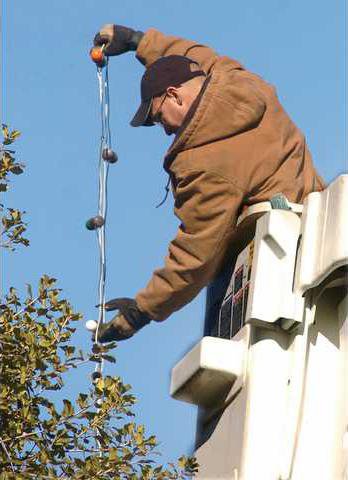Safe and warm
Here are few tips on keeping safe at home during cold weather:
- Keep portable space heaters, open fireplaces and wood stoves separated from curtains, draperies and other flammable material. Make sure heaters have adequate ventilation and follow the manufacturer’s operating instructions.
- Have home heating units checked annually to be sure they are working efficiently and safely. Make sure all fuel-burning appliances and fireplaces are properly vented. If you suspect a gas leak in your home, leave immediately and call the gas company from elsewhere.
- Make sure kerosene space heaters have an automatic shut-off in case they tip over. Use only K-1 kerosene in a space heater, as gasoline can cause an explosion. Wait until the heater has cooled and then take it outside to refuel it.
- Make sure to have an adequate number of smoke alarms and that the ones in your house have working batteries.
- Have a well-rehearsed family escape plan. All rooms, especially bedrooms, should have two escape routes. Have a predetermined meeting place outside the house in the event of a fire or other emergency.
Source: Georgia Insurance and Safety Fire Commissioner John W. Oxendine’s office
Those cold weather types must be having a blast.
Here’s a message to the rest of the population wondering where fall went and longing for warmer days: Don’t hold your breath.
The frosty and bone-chilling temperatures that have swooped into the area this week could hang around for a while, forecasters say.
"We’re in a pattern of getting these dry, cold fronts moving in," said Brian Lynn, meteorologist with the National Weather Service in Peachtree City.
"You’re going to see this continue. ... You’re going to warm up some and then if a cold front comes through, you’re going to cool off."
High temperatures are expected to rise to 57 by Thursday but then drop to 48 by Friday and 49 by Saturday. The lows Thursday and Friday are expected to be in the upper 20s.
The Hall County area was under a freeze warning overnight Monday and a wind advisory through most of Tuesday. On Tuesday, the weather service issued another freeze warning to last until 9 a.m. today.
Last night was expected to be the coldest night in the area’s cold spell.
"This will end the growing season," Lynn said.
"Generally, we say the growing season ends the latter part of November, anyway. But anytime you get a period of temperatures 28 degrees or below, that pretty much stops anything that can’t take that weather."
According to the weather service, what’s causing the mercury to dip is a cold Canadian air mass from the Northern plains. Gusty winds have followed the air mass, making conditions feel colder than they really are.
"It’s a little atypical to see this in November, but it’s not out of the norm by any stretch," Lynn said.
January usually is the coldest month of the year, with highs in the low 50s and lows in the low 30s, he added.
Also, the weather is dry, and that is bad news for the drought-ravaged South.
As of Tuesday, Lake Lanier’s water level was 1,051.63 feet above sea level. Full pool is 1,071 feet.
And rain may not arrive until Monday, when there is just a 20 percent for showers.
Dry conditions and cold temperatures also increase the risk for fire.
"We are also pleading with our citizens to be careful and remain fire wise," said Capt. Scott Cagle, fire marshal for Hall County Fire Services. "Even though the economy is down, it is not time to cut corners regarding fire safety."
The department didn’t issue burn permits Tuesday because of high winds, Cagle said.
Georgia Insurance and Safety Fire Commissioner John W. Oxendine’s office released on Monday some suggestions for safely keeping warm at home, including keeping heating equipment away from flammable material and making sure smoke alarms are working.
Also, for the sake of safety on the roads, homeowners need to remember to turn off sprinkler systems with automatic timers set to run overnight, according to the Georgia Department of Transportation.
"Sprinkler systems that are left on overnight can create hazardous conditions for motorists the next morning," said District Engineer Russell McMurry.
"Every year, we see accidents caused by icy spots formed when water from sprinkler systems gets onto the roadway. Spray from the sprinkler is blown onto the road or water drains onto the road. Black ice is formed, and we have problems."
The worst time of the year for these accidents is when subfreezing temperatures strike as part of the first cold snap before winter.
"Please be on the lookout for icy patches or black ice, especially early in the morning," McMurry said.




